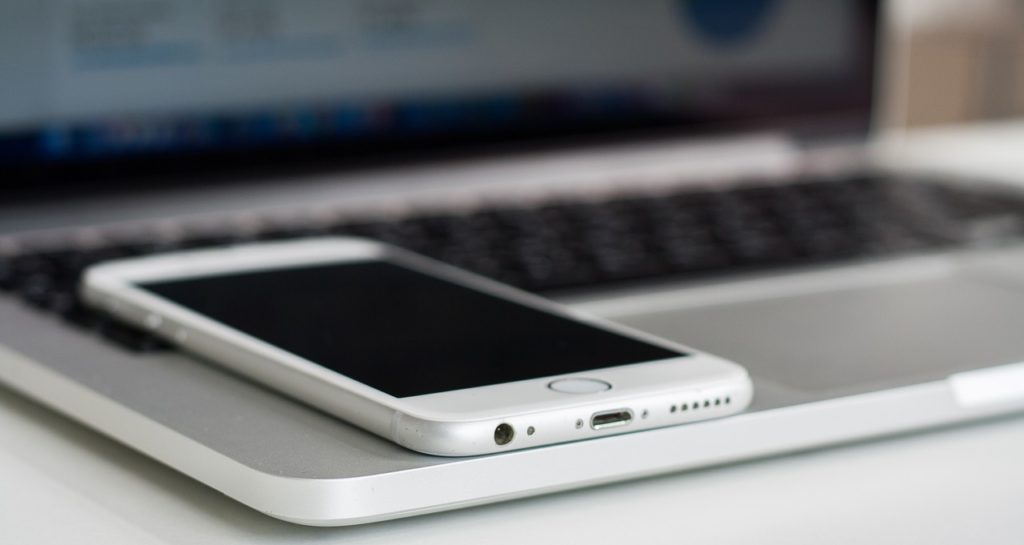- Rail blockade illustrates the ambiguity of legal rights - March 4, 2020
- ‘Colonial policing’ in Indigenous communities a complex issue: Grey - February 3, 2020
- Supreme Court of Canada decision is a call to action for the Crown: Grey - January 15, 2020
The Canadian Border Services Agency’s (CBSA) ability to search electronic devices belonging to lawyers returning to Canada raises serious questions around both solicitor-client privilege and other areas of personal information that are open to government intervention, says Alberta civil litigator Leighton Grey.
“What’s really concerning is the government of Canada is taking a strange stance and relying on a 30-year-old law which predates cellphones to justify that they should have full access to all the information on these electronic devices,” says Grey, a senior partner with Grey Wowk Spencer LLP. “Smartphones and iPads can contain enormous amounts of information beyond anything that could be imagined in the late 1980s, so it begs the question, why is this happening?”
Earlier this year CBSA staff seized a Toronto lawyer’s cellphone and laptop after he refused to share passwords for the devices on his return from Guatemala and Colombia where he had been working remotely. As reported by the CBC, the lawyer indicated there was confidential information on the devices protected under solicitor-client privilege.
The man and another lawyer have filed an application in Federal Court for a ruling that the practice of searching any personal information filed on electronic devices without probable cause or a warrant is in breach of s. 8 of the Charter. They also cited a ruling that searching materials covered by solicitor-client privilege is specifically contrary to the process determined in previous cases involving ss. 7 and 8 of the Charter.
“I’m very troubled by this case, and I’m watching it very closely to see how it shakes out,” Grey says. “We have a duty, especially as lawyers, to stand up for individual rights and civil liberties and to defend the Constitution. If we don’t, the argument goes that all of these freedoms will be quickly eroded, which has happened historically in other countries.”
He says the outcome of the legal challenge will have far-reaching effects for all Canadians because the solicitor-client privilege is considered “sacrosanct.”
“It begs the question — if privileged information between lawyers and clients is not protected, then what information is protected?” Grey says.
The CBSA maintains it has the right to search devices at the border without a warrant. Grey says the direction to lawyers from legal professional organizations — as to what to do when asked by CBSA to provide passwords for their devices — has not been encouraging.
“Sadly, the recommendation from the Canadian Bar Association to lawyers is that we’re supposed to wipe our devices before we do a border crossing, which to me is really shocking,” he says.
The position is particularly troubling, says Grey, in light of a Federation of Law Societies 2018 report that Canadian lawyers and Quebec notaries were facing increasing uncertainty about how electronic devices would be handled by border agents on a return to Canada.
“The Federation of Law Societies said there have to be special rules for information lawyers are carrying on them, but that’s not the position being taken by the border authority — they can search goods without a warrant, and they are treating something like a cellphone as a good, which to me is absurd,” he says.
“I can wipe the device but is the Cloud protected? Can they come to my firm and access what’s on my server? Where’s the limit?”
Grey says the CBSA has become increasingly aggressive in its search of personal property at the border.
“It would be naïve to think the search of this lawyer was random — clearly this is a new approach. The government is not just searching for drugs, they’re searching for information, and they’re saying the government is entitled to receive information in the possession of lawyers that is sanctified under the shroud of solicitor-client privilege,” he says.
The CBSA’s power to search a lawyer’s cellphone or laptop seems to be contrary to a position Prime Minister Justin Trudeau took in the SNC Lavalin affair, Grey says.
“What did the Prime Minister say when the SNC Lavalin scandal broke? He said our minister of justice could not speak to the media or reveal details of his conversations with his justice minister because it was protected by solicitor-client privilege,” he says.
If the Constitutional challenge from the lawyer whose cellphone and laptop were seized is not upheld by the courts, it will fundamentally change what types of searches Canadians are protected from, Grey says.
“The Charter exists to protect Canadians from government action — our government has enormous power far beyond what any individual could possess. The Constitution is there to place limits on the exercise of government power, and if there are no reasonable limits, it really questions what rights we have in relation to our government and what kind of conduct we can expect from it,” he says.
What advice does Grey have for lawyers who are travelling across borders with electronic devices?
“I would like to think I would say the same thing the lawyer did, but having seen what happened, I’m following the advice of the Canadian Bar Association and Federation of Law Societies, which say the prudent practice is to wipe your devices and don’t cross the border with any solicitor-client information on them. It’s really sad that that’s the situation. There really should be special protection for lawyers who are couriers of information.”

